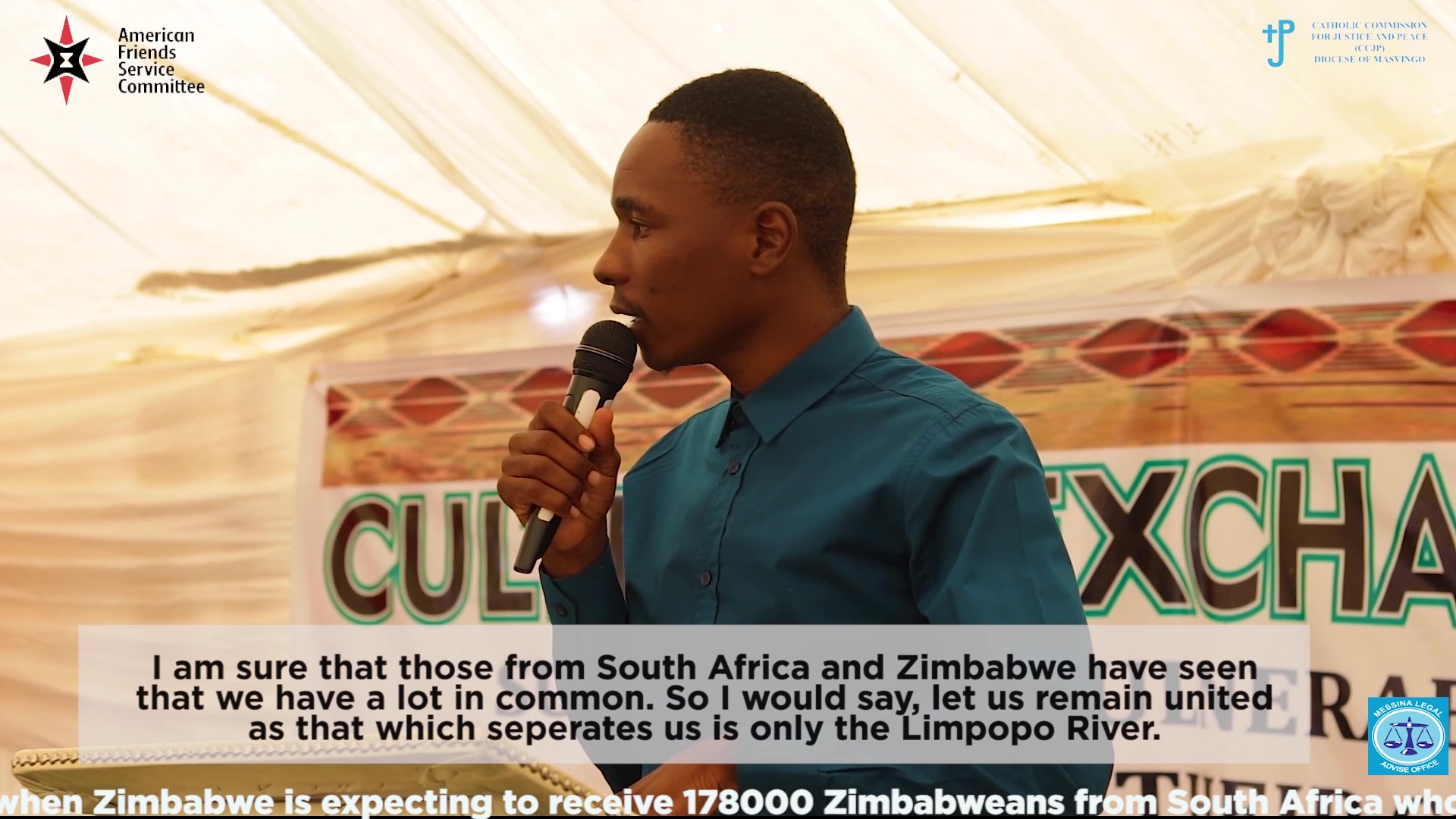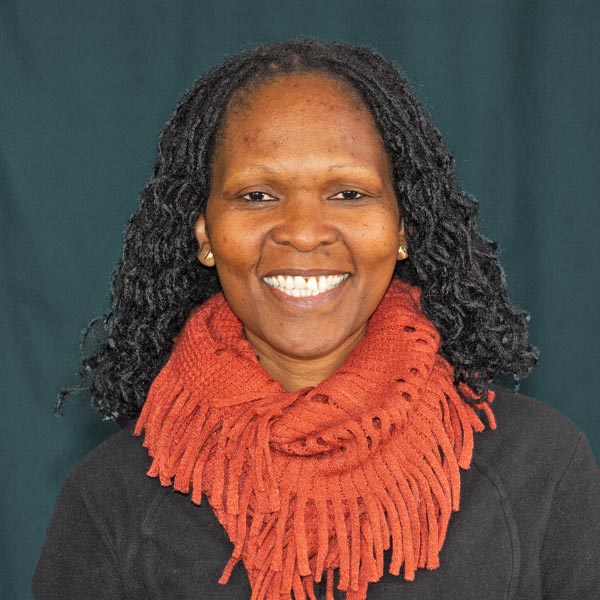
At a recent cultural festival, community members from Lutumba in Beitbridge showcase their traditional foods and cooking utensils. Photo: AFSC/Zimbabwe
Since the end of South African apartheid, hundreds of thousands of people from Zimbabwe have migrated to South Africa in search of a better life. In 2009, the South African government began granting Zimbabweans a special permit to live and work in the country.
But since then, migrants from Zimbabwe have faced xenophobia, violence, and even killings. In recent years, attacks against migrants have escalated amid growing unemployment and poverty in South Africa.
Now the South African government is set to end special permits for Zimbabweans on June 30 – a decision due in part to pressure from anti-migrant groups. The change could affect as many as 180,000 people. While some would find ways to remain in South Africa, many would be forced to return to a country they haven’t lived in for years.
Since 2009, AFSC has worked in Zimbabwe with people who have been displaced from their communities. We have helped them heal from trauma, develop conflict resolution skills, and learn trades to support themselves and their families. Today we are expanding on that work to support more migrants and their host communities in South Africa as well as in Zimbabwe.
Our “People on the Move” project fosters peace among community members. Migrants are participating in trauma healing sessions, receiving psychosocial support, and getting trained to know their rights. Migrants and other community members are also learning skills to resolve conflicts peacefully and to advocate for their communities.
One of our earliest participants was Gladys Mudau, a pastor in the South Africa town of Musina, near the border of Zimbabwe. She is the founder of the community-based organization House of Hope Restoration, which provides counseling to women and youth, including many migrants from Zimbabwe.

Gladys Madau (right), a pastor from South Africa, prepared traditional food. In her community, she is working to change how people perceive and treat migrants. Photo: AFSC/Zimbabwe
Last year, Gladys began attending conflict transformation trainings conducted by AFSC and partner Messina Legal Advice Office. She became a member of the community’s peace committee, which is made up of trusted community members who help residents peacefully resolve disputes. She talks to congregants at her church about migrant rights and ensures migrants are included in leadership roles. Using what she has learned, she is helping to change how her community perceives and treats migrants.
“As a pastor in our church, I preach the gospel of peace,” Gladys says. “People should have tolerance of one another despite differences in nationality, ethnicity, and culture.”
AFSC and partners are also creating safe spaces for people to come together and build understanding across divides. Last spring, we hosted a Cultural Exchange Festival in the Zimbabwe border town of Beitbridge. More than 150 people participated, including migrants, returnees, internally displaced people, host community members, government officials, traditional and religious leaders, and members of civil society organizations.
The festival promoted the cultural diversity of the two countries through music, dance, cultural attire, food, traditional games, poems, songs, and drama. Despite their differences, participants recognized the similarities in their musical instruments, dances, clothing, and dishes. They began to see how, at one point in history, people from southern Zimbabwe and northern South Africa used to share a common culture, before they were separated by colonial borders.

Last week, AFSC co-hosted a four-day cultural exchange festival in Zimbabwe. The goal was to promote peace, tolerance, and social cohesion among people from Zimbabwe and South Africa. The event is part of efforts to prepare for the return of over 170,000 Zimbabweans who have been living in South Africa under a special exemption permit. They are scheduled to return in June after the exemption expires.
Many participants shared with AFSC staff how the festival helped to dispel stereotypes they had. They told us that as fellow Africans, they were committed to advance peace and the spirit of Ubuntu—a Nguni Bantu term that promotes collectivism over individuals. These messages were transmitted beyond our event, as the festival was screened on national television and featured in local and national newspapers.
For Gladys, the festival was the first time she had ever traveled outside of South Africa. “I go home a changed person. I have gained a lot of knowledge and understanding of the Zimbabwean culture. We share a lot in common and we are one people.”
As the country representative for Zimbabwe, I’m grateful to supporters like you who have made these efforts possible. And I am excited that we will be working with more people in Zimbabwe and South Africa toward a future where all people can live in safety and peace.
If you’d like to support our efforts to aid refugees and other displaced people in Africa and around the world, please make a gift to AFSC’s Refugee Response Fund today.
